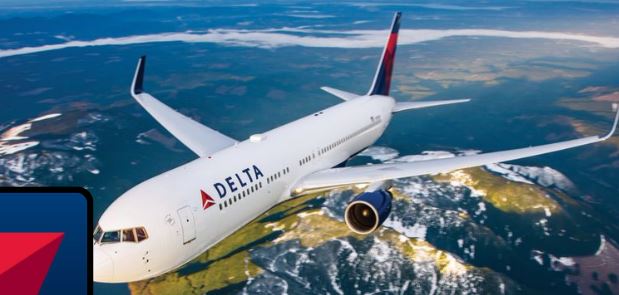The Incident: What Happened in July?

In early July, Delta Airlines experienced a mass disruption to its operations, one that was quickly traced back to a software update provided by CrowdStrike, which supplies cybersecurity solutions to Delta. According to Delta, this update contained flaws that severely impacted its operational systems, leading to a cascade of technical failures that made it impossible to safely manage flights across the network.
The impact was immediate and severe. The breakdown forced over 3,000 flight cancellations and countless delays, affecting both domestic and international routes. The disruptions stranded hundreds of thousands of passengers, some of whom were left without alternative travel options for days. Delta estimates that more than 1.3 million passengers experienced significant delays, while the ripple effects impacted thousands of connecting flights and partner airlines.
The Lawsuit: Delta’s Claims Against CrowdStrike
In its lawsuit, Delta Airlines alleges that CrowdStrike’s software update contained “fundamental defects” that had a “catastrophic impact” on its operations. Delta’s legal team claims the update failed to meet industry standards for reliability and quality assurance, resulting in irreparable damage to Delta’s operations and reputation.
The suit details several core allegations:
- Negligence: Delta claims that CrowdStrike was negligent in releasing an update without proper testing, leading to severe malfunctions within Delta’s operating systems.
- Breach of Contract: Delta states that CrowdStrike failed to uphold the terms of its service agreement, which specified robust cybersecurity solutions with minimal risk of operational impact.
- Economic Damages: The airline is seeking compensation for the more than $500 million in financial losses incurred as a direct result of the flight disruptions, which includes lost revenue, customer compensation, and the costs of rerouting and rescheduling flights.
Delta’s lawsuit also seeks damages for “reputational harm,” citing the significant impact that such a large-scale disruption has on passenger trust and the brand image of an airline that prides itself on punctuality and reliability.
CrowdStrike’s Response
CrowdStrike has issued a brief statement expressing regret over the situation but has not admitted fault. The cybersecurity firm insists that it followed all necessary protocols during the update and that Delta’s IT infrastructure could have played a role in exacerbating the issue. CrowdStrike claims they are prepared to defend its reputation in court and asserts that it has a track record of high-quality cybersecurity solutions.
Earlier, a senior executive at CrowdStrike apologized before Congress for the faulty software update.
The Broader Impact: A Wake-Up Call for Airlines and Tech Providers

The Delta-CrowdStrike incident has highlighted the risks of relying on third-party vendors for critical operational technology, particularly in the airline industry, where even minor disruptions can have far-reaching effects. It raises questions about the safeguards and testing protocols that should be in place when implementing software updates on systems that directly affect flight safety and scheduling.
This case serves as a warning to other airlines and industries that depend on integrated tech solutions. Moving forward, companies may demand more rigorous testing, better transparency, and contractual guarantees from their technology providers to prevent similar incidents.
The Financial and Reputational Toll on Delta
Beyond the financial losses, this incident has left Delta Airlines with a reputational challenge. Delta’s commitment to being a leader in punctuality and customer service was called into question as passengers vented frustration on social media and flooded customer service lines. Rebuilding this trust will be a priority for Delta in the coming months.
To make amends, Delta Airlines has committed to compensating affected passengers, including full refunds for canceled flights, hotel accommodations for stranded travelers, and frequent flyer miles. However, the incident underscores the importance of reliable technology partnerships, especially in industries where delays and downtime can have massive financial and operational consequences.
A Call for Tighter Tech Regulations in Aviation
This lawsuit could be the beginning of a trend where airlines scrutinize their tech providers more closely, and it may spark regulatory interest in setting higher standards for software reliability in aviation. Lawmakers and industry leaders may push for new policies mandating stringent testing and accountability for any software that impacts flight operations, considering the substantial economic and human impact of such disruptions.
Ultimately, the outcome of this lawsuit could lead to a rethinking of how technology solutions are vetted, tested, and deployed in high-stakes industries, ensuring greater security, efficiency, and customer satisfaction in the future.

